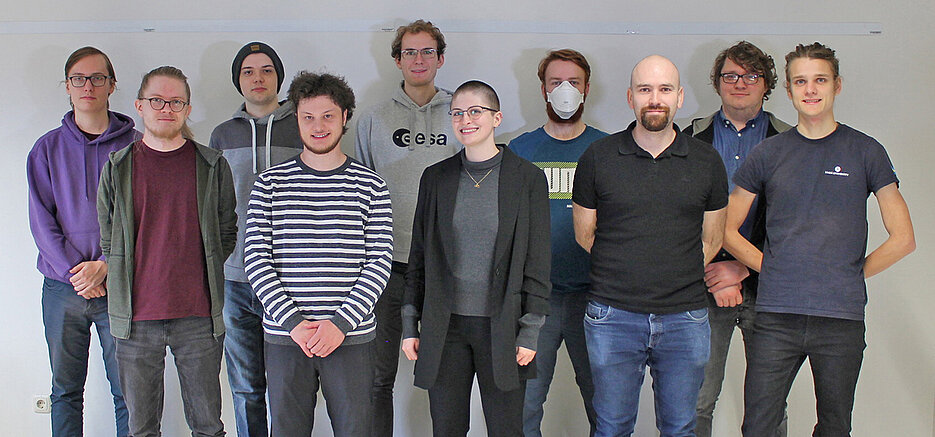Using artificial intelligence methods to prevent collisions of nanosatellites in orbit: This is the aim of a new project in which students are leading the pen.

Small satellites with a mass of up to 20 kilograms are increasingly being used for commercial purposes, for example for telecommunications services, Earth observation missions or for testing new technologies in space. This entails risks: With the increasing number of small satellites, the probability of collisions in orbit increases.
Students at Julius-Maximilians-Universität Würzburg (JMU) in Bavaria, Germany, want to prevent this danger. In the newly launched KI-SENS project, they are developing intelligent sensors and algorithms for small satellites so that they can detect dangerous approaches to other objects in good time and prevent collisions by changing course.
Students get to know the entire process
Usually, such technological development work at universities is carried out by scientific staff. Students often play only a secondary role: they support the work as research assistants or in the context of final theses.
This is completely different at KI-SENS. Here, around 20 students from the WüSpace association act largely independently. They take on the work in project management, development, construction and testing. In this way, they get to know the entire process of a development project in space travel. For their participation in the project, they can also receive ECTS credits as part of internship modules and final theses.
The students are supported by space technology professor Hakan Kayal and his research assistant Tobias Herbst. The German Space Agency at the German Aerospace Centre (DLR) is funding the project with funds from the Federal Ministry of Economics and Climate Protection (BMWK; funding code 50RU2227).
Drones piggyback on small satellites
The two-year project is based on the technology of the SONATE-2 satellite, which is currently being prepared for Earth observation purposes by Professor Kayal's team at JMU.
"We will develop intelligent, optical sensors, build a prototype and test it on the ground under realistic conditions," says Tobias Herbst. Drones carrying satellite dummies as payloads are to be used for this. The first tests are expected to take place as early as 2023.
High-quality education in aerospace
Hakan Kayal explains why it is students who are working on this project independently: "We can only achieve sustainable progress in the field of intelligent sensor technology for small satellites with qualified young people." Student projects of this kind would contribute significantly to high-quality education and attract further motivated students.
Many other activities are possible in the student association WüSpace, which currently has 73 members. "With us, students can exchange ideas in the field of aerospace and take part in projects, such as experiments with high-flying balloon platforms, sounding rockets or satellite missions," says doctoral student Clemens Riegler, who co-founded the association. Appropriate supervision, sufficient equipment and the availability of rooms are guaranteed through the cooperation with the university.






